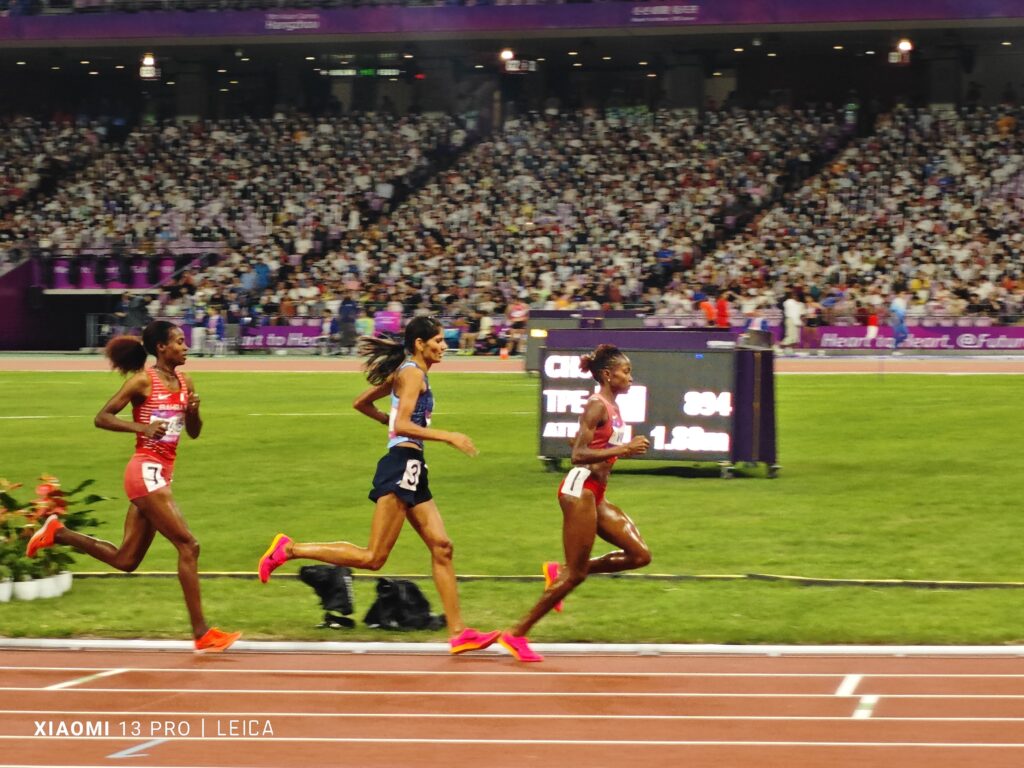Sebastian Coe, the president of World Athletics, wasn’t just one of the greatest middle-distance runners of all time. He also raced in an era where he could see first-hand the full extent of Africa’s athletic potential. When, in his subsequent avatar as the sport’s chief administrator, he raised the thorny topic of immigration, those that might otherwise have turned a blind eye to it were forced to listen.
“It’s not an easy thing for me to say but I was finding it quite hard to see a difference between what was emerging and human trafficking,” Coe said in an interview with Sydney’s Daily Telegraph in 2020. He went on to talk of how farcical it was “when you have a system where two federations could effectively shake hands behind closed doors and an athlete, with very little guarantee on either side of the protocol around that transfer, could suddenly end up competing for a completely different country.”
This topic has raised its head again in Hangzhou, especially on the athletics track. Before any accusations of bias or xenophobia, let’s look at some facts. In the seven Asian Games in which they participated in the 20th century, the tiny state of Bahrain, in the Persian Gulf, won precisely one gold medal. This century has been a different tale. There have been 36 golds across the last five Asian Games before Hangzhou, peaking with 12 in Jakarta five years ago.
It’s only when you scan the list of gold-medal winners that you realise things aren’t quite as they should be. Morocco, Nigeria, Kenya and Ethiopia – each of the 11 individual gold winners from Jakarta was born in one of these African countries. Of those, Salwa Eid Naser, whose father was born in Bahrain, moved there from Nigeria at the age of 14. The vast majority went there as talented juniors enticed by what was on offer.
EXCLUSIVE🚨
“I can’t predict the number of medals because African athletes are running for some countries…” – @Adille1, President of @afiindia opens up in an exclusive chat with @BoriaMajumdar#AsianGames2022 #IndiaAtAsianGames pic.twitter.com/tVMAqOYbdf
— RevSportz (@RevSportz) October 2, 2023
Some, like Kemi Adekoya – who won the women’s 400m in Hangzhou, ahead of Naser – had already represented their country of birth (Nigeria) in international competition before switching allegiance at the age of 21. Most controversial was the case of Ruth Jebet, Olympic champion in Rio de Janiero in the 3000m steeplechase, and now serving a doping ban for using EPO. Jebet was a product of the Kenyan system, who mostly lived and trained there. But the medal she won belonged to Bahrain, who were rumoured to have paid her $500,000 for winning it.
It’s not as though Bahrain are the only culprits either. Scan the list of names in the Qatari team that won handball gold in Incheon, and you’ll find those who were born in France, Spain, Montenegro, Bosnia, Cuba and other countries. Decades ago, folks in the Republic of Ireland would joke about talented footballers playing in the English league and the need to find them an “Irish grandmother”. But those that did eventually play for Ireland did have some such ties. In most of these guns-for-hire cases, there isn’t even a third-uncle, twice removed.
Why even call it the Asian Games then? During the collegiate track-and-field season in the United States of America (USA), you’ll find dozens of sprinters who run faster than any Indian man has ever run the 100m. Should India now hire one of them before the next games in Nagoya?
An extreme case of this sort of abuse of sporting traditions came at the European Athletics Championships in 2016. After not having won a single gold in the first 14 editions of the competition, Turkey started to widen its catchment net. By 2016 in Amsterdam, when they finished fourth in the medals table with four golds, five silvers and three bronzes, the squad contained seven Kenyans, two Jamaicans, a Ukrainian, a Cuban, an Ethiopian, a South African and an Azeri. Again, none of them was a Zlatan Ibrahimovic – of Bosnian-Croat ancestry, but born and raised in Sweden. Most had not even been to Turkey until they were well into their 20s, and had no ties to the country whatsoever.
We cannot overlook the fact that many athletes relocate to escape political persecution or dire poverty. But as Coe so rightly said, we owe a duty of care to talented juniors across the world. Many of them have no idea what they’re getting into, and only see the dollar signs flashing in front of their eyes. There have been cases of athletes representing a country without actually being granted citizenship. If that isn’t a farce, then what is?
Adekoya and Naser finished more than 1.5 seconds in front of Malaysia’s Shereen Samson Vallabouy. India’s Aishwarya Mishra finished almost another second adrift in fourth. For athletes like Mishra, the difference between fourth and a medal can be life-changing. An Asian Games medal often means a government job, plentiful cash awards and corporate support. Miss out, and the chances are the gravy train leaves the platform without you.
Again, we can’t emphasise enough that this is not about immigration, which is as old as humanity itself. It’s about some countries making use of loopholes in the system to subvert it, and using their financial muscle to lure young athletes. In the interest of fairness, that has to stop.




